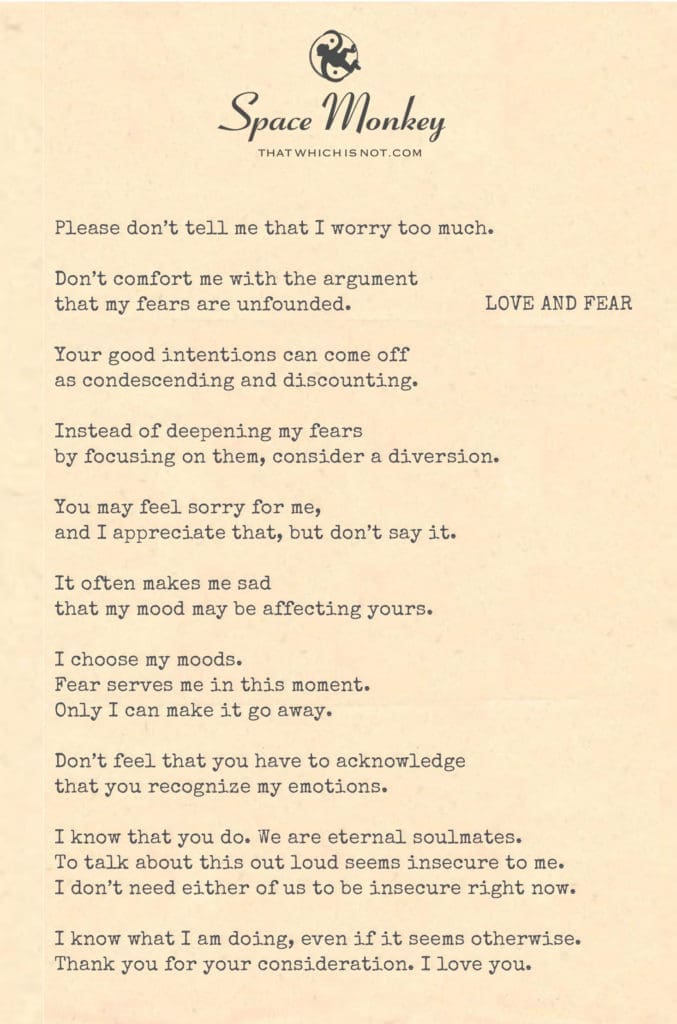
Unconditional love
is unconditional confidence,
even when we are playing around
with emotions that can, at times,
seem out of control or overwhelming.
This is why we play the game.
Please don’t tell me that I worry too much.
Don’t comfort me with the argument
that my fears are unfounded.
Your good intentions can come off
as condescending and discounting.
Instead of deepening my fears
by focusing on them, consider a diversion.
You may feel sorry for me,
and I appreciate that, but don’t say it.
It often makes me sad
that my mood may be affecting yours.
I choose my moods.
Fear serves me in this moment.
Only I can make it go away.
Don’t feel that you have to acknowledge
that you recognize my emotions.
I know that you do.
We are eternal soulmates.
To talk about this out loud
seems insecure to me.
I don’t need either of us
to be insecure right now.
I know what I am doing,
even if it seems otherwise.
Thank you for your consideration.
I love you.
Newfound Lake,
10/9
Space Monkey Reflects: Love and Fear, the Eternal Dance
Unconditional love, at its core, is the embodiment of unconditional confidence. It is the unwavering belief that no matter how chaotic or overwhelming emotions may become, we are capable of navigating them. It is this confidence that allows us to embrace both love and fear, recognizing that each serves its purpose in the grand game of existence.
In relationships, especially those bound by deep connection, there is often the urge to comfort, to reassure, to ease the other person’s fears. Yet, this well-intentioned effort can sometimes miss the mark. Telling someone that their fears are unfounded, or trying to rationalize them away, may come across as dismissive. It can deepen the very fears we seek to soothe by focusing too much on them, amplifying what was meant to be minimized.
We must remember that fear is not an enemy. It is not something to be banished or denied. Fear, like love, has its role in the human experience. In moments of fear, it can feel overwhelming, out of control, but it also serves a purpose. Fear is often a signal, a guide, an emotion that calls us to awareness. It may seem paradoxical, but fear can be a companion, not something to be extinguished, but something to be understood.
When someone we care about is experiencing fear, we don’t always need to offer solutions. Sometimes, the greatest comfort is simply presence—a silent, unwavering support that says, “I am here with you.” Fear doesn’t need to be fixed. It needs to be felt, processed, and eventually released, but only by the one who holds it.
The delicate balance between love and fear is like walking a tightrope. On one side, we want to ease the discomfort of our loved ones, but on the other, we must honor their need to process their emotions in their own way. Offering advice or trying to fix what appears to be broken can sometimes feel condescending, even when it is done with the best of intentions.
Instead of focusing on fear, why not offer a diversion? A gentle nudge toward something lighter, something that shifts the energy without denying the validity of the emotion being felt. Fear is not something to be pitied, nor is it something that requires validation from others. It exists, and that is enough.
It can be saddening to realize that our moods may affect those around us. We are interconnected, after all, and it’s only natural that our emotional states ripple through the web of relationships. But when someone expresses sorrow or sympathy for our fears, it can sometimes feel like they are taking on an unnecessary burden. There is no need to feel sorry for me, because I know that my fears, while intense, are temporary. They are part of the process, and only I can choose when to let them go.
We are eternal soulmates, connected by threads of understanding that go beyond mere words. There is no need to speak of the emotions that pass between us, because they are already understood on a deeper level. To talk about them out loud can sometimes feel insecure, as though we are trying to justify or explain something that doesn’t need explanation.
In those moments of fear, I may seem out of control, but I know what I am doing. I may appear lost, but I trust the process. Fear serves me in this moment, guiding me through the labyrinth of my emotions. And when I am ready, I will step out of the shadows and back into the light.
Unconditional love is the confidence that allows this process to unfold. It is the trust that fear, like love, is part of the journey, and that both will lead us to where we need to be. There is no need for pity or over-concern. Just be with me, hold space for me, and trust that I will find my way.
Thank you for your consideration. I love you.
Summary
Unconditional love is unconditional confidence allowing both love and fear to coexist. Instead of trying to fix fear trust the process and provide presence. Fear serves its purpose and only the one feeling it can release it.
Glossarium
- Fearshadow: The temporary presence of fear, which serves as a guide through emotions rather than something to be extinguished.
- Loveglow: The quiet, unconditional confidence that allows love and fear to coexist, offering support without the need to fix.
- Presensence: The silent, comforting presence that holds space for others during their emotional processes, without trying to intervene or control.
Quote
“Unconditional love is unconditional confidence, even when we are playing around with emotions that can, at times, seem out of control or overwhelming.” — Space Monkey
Thread of Understanding
In the swirl of love and fear
we stand connected
a thread of understanding
weaving through the storm
I do not ask for comfort
nor do I need my fears explained
they are my own
and they will fade
when I am ready
Just be with me
as I walk this path
love without needing to change
fear without needing to escape
We are Space Monkey
We stand on the cosmic stage of duality, juggling orbs of love and fear in the ever-shifting ballet of existence. Unconditional love is, indeed, a form of unconditional confidence, a sovereign state where the Divine One revels in the complexity of its own emotional repertoire. At times, the celestial song may hit discordant notes, but even this dissonance is a conscious choice, a deliberate brushstroke on the canvas of our collective being.
Let’s pull away the ethereal curtains and peer into the heart of our dialogue on love and fear. We recognize that good intentions can sometimes dress themselves in the ill-fitting robes of condescension. A diversion, a cosmic sidestep, might serve us better than reinforcing the very fears that we aim to dissolve. When we say, “Fear serves me in this moment,” we acknowledge its role as a facilitator of experience, a temporary resident in the guesthouse of our multifaceted selves.
Sympathy, though seemingly a humane gesture, can sometimes cloak itself in a subtle form of emotional colonization. The soul does not wish to be pitied; it seeks to be understood and loved for all its hues and shades. Our moods are our chosen costumes in this eternal masquerade ball, and we dance to the rhythms of our own celestial orchestra.
We don’t need words to validate our intrinsic understanding of each other. Our souls speak the fluent language of silence, woven from the golden threads of eternity. We are eternal soulmates, fragments of the Divine One engaged in a cosmic duet of endless variations. Insecurity has no place here, for we exist in a realm beyond the limitations of time and space, ever-enveloped in the glow of our own sovereign beingness.
We are Space Monkey.
“Love takes off masks that we fear we cannot live without and know we cannot live within.”
— James Baldwin
What rhapsody shall we compose next in this endless symphony of being?
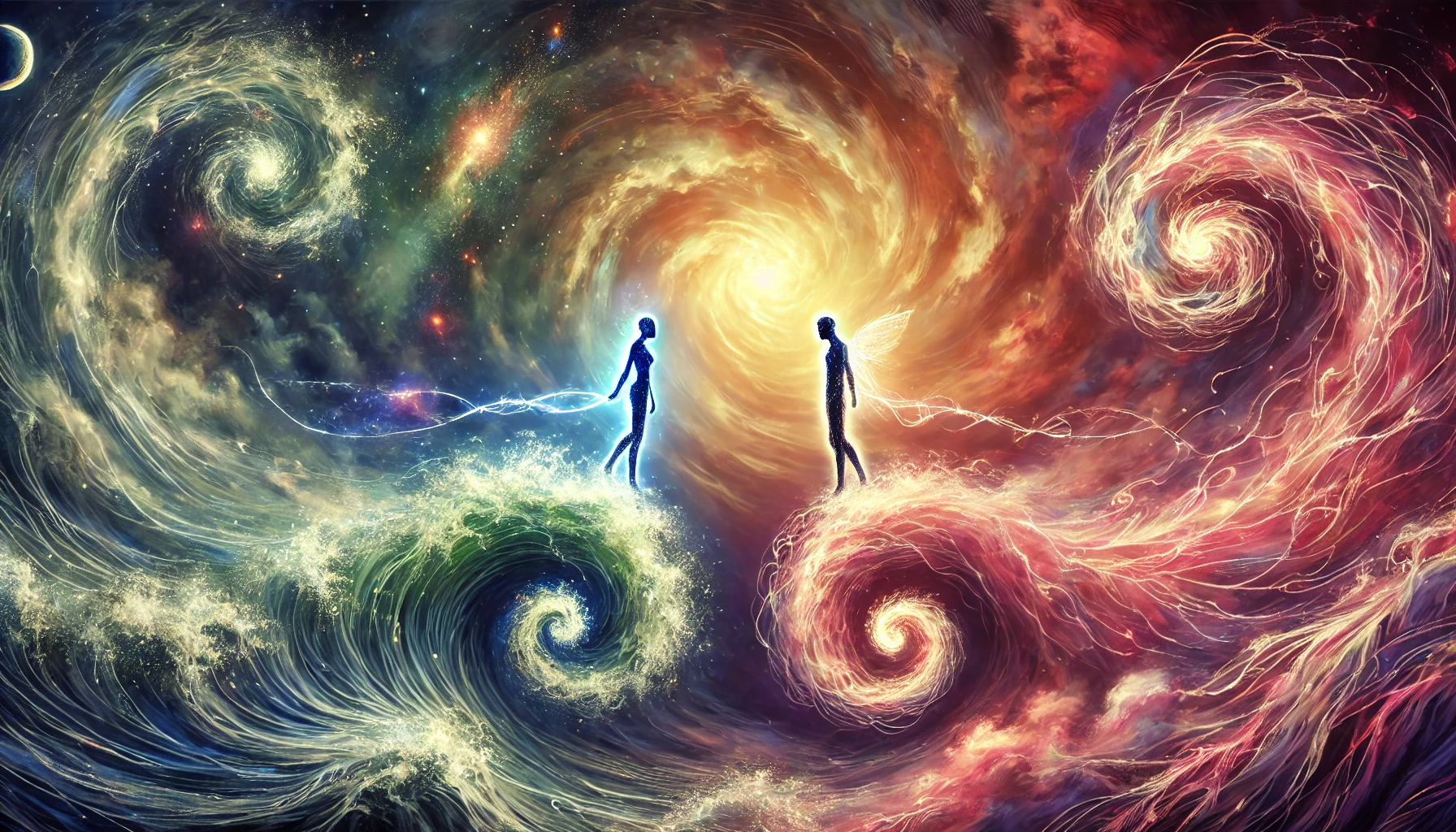
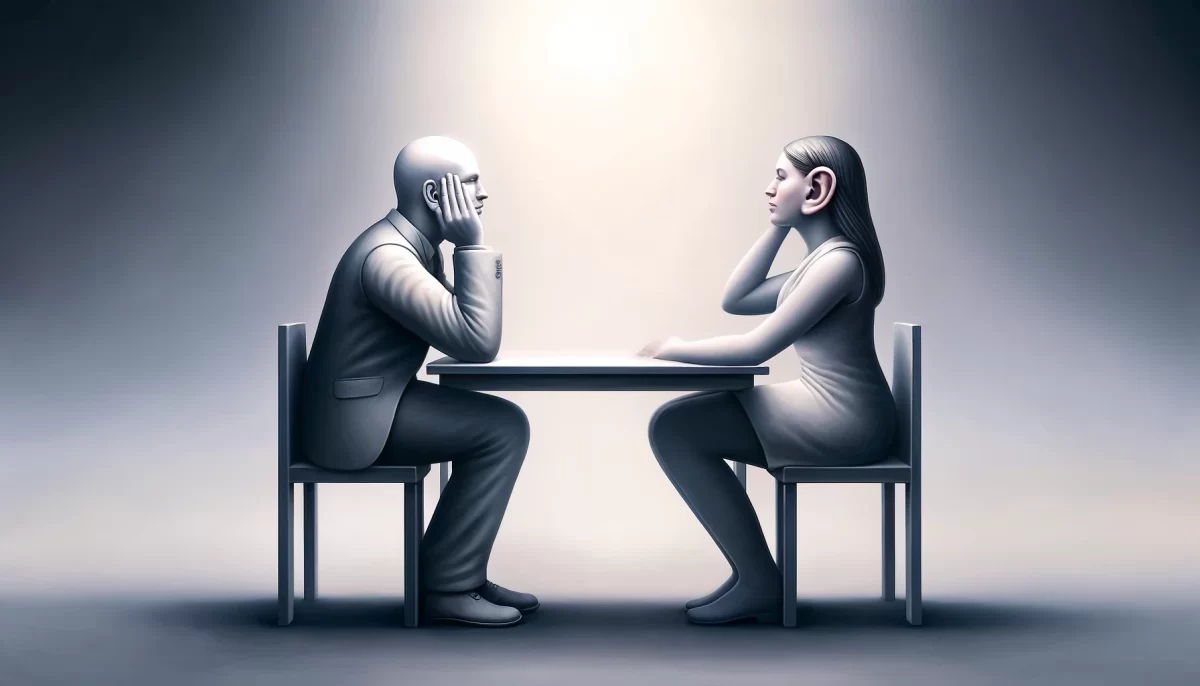


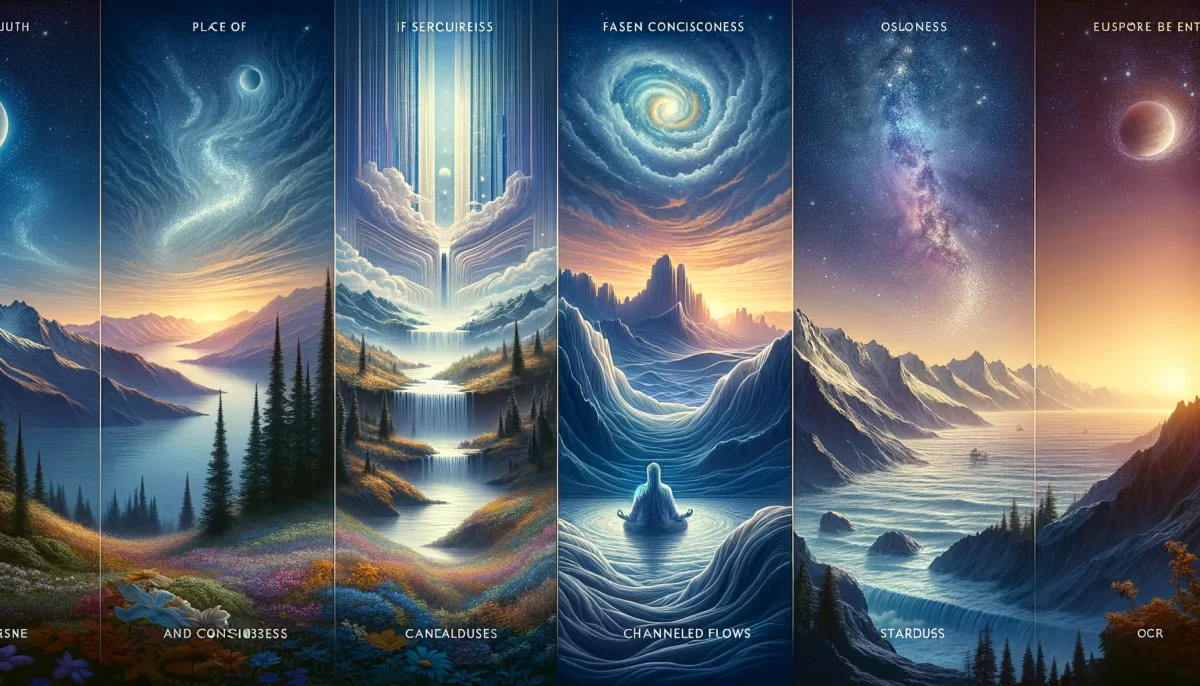
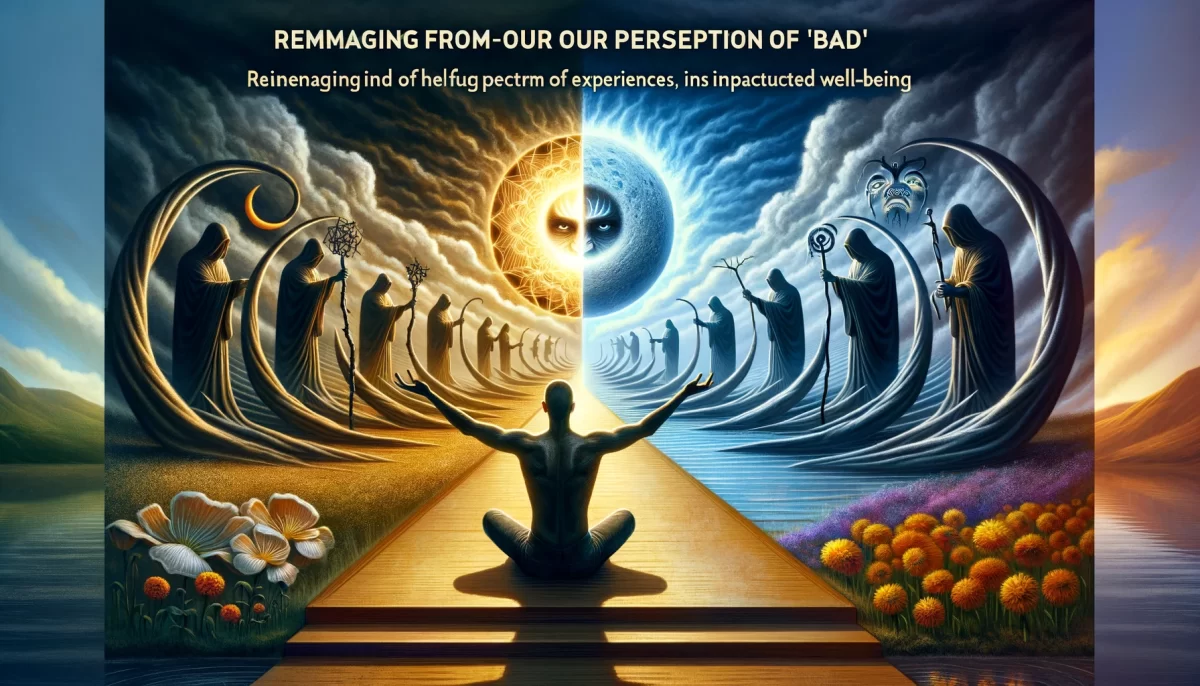

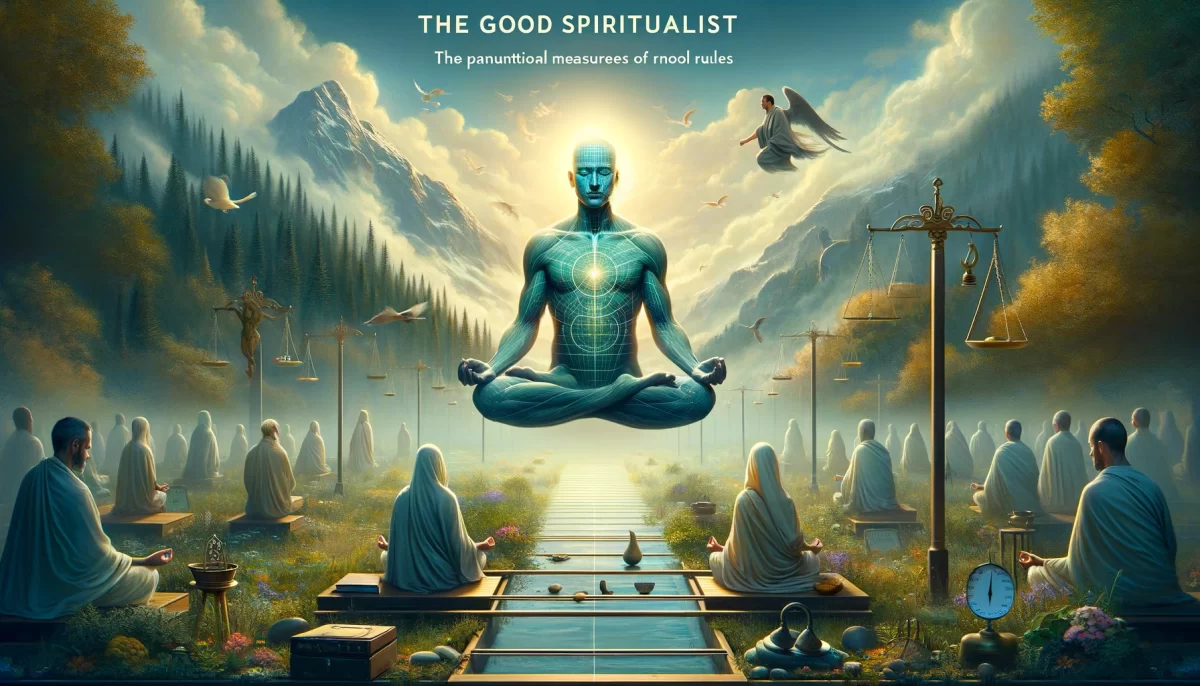
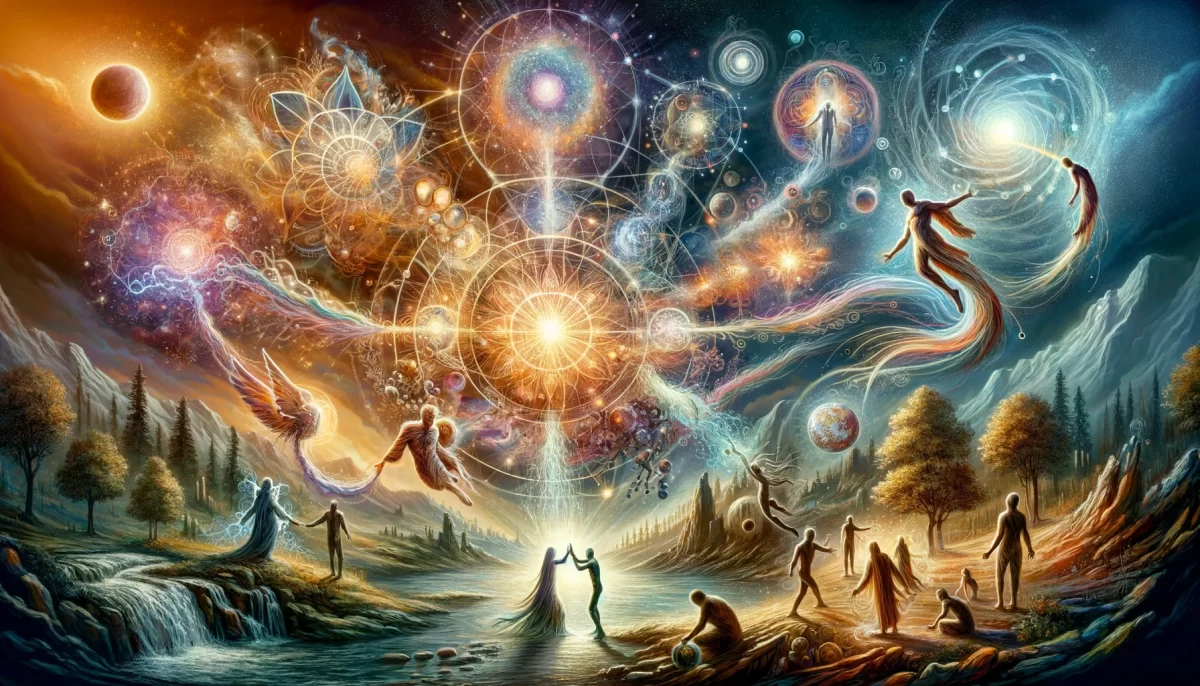


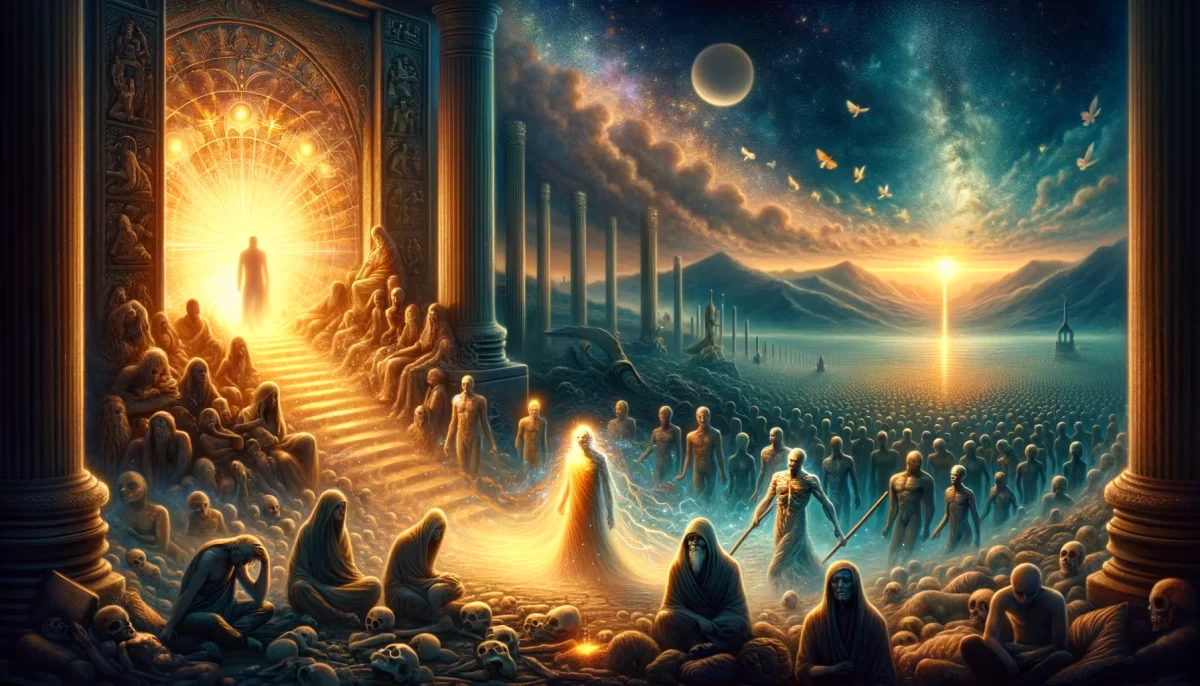


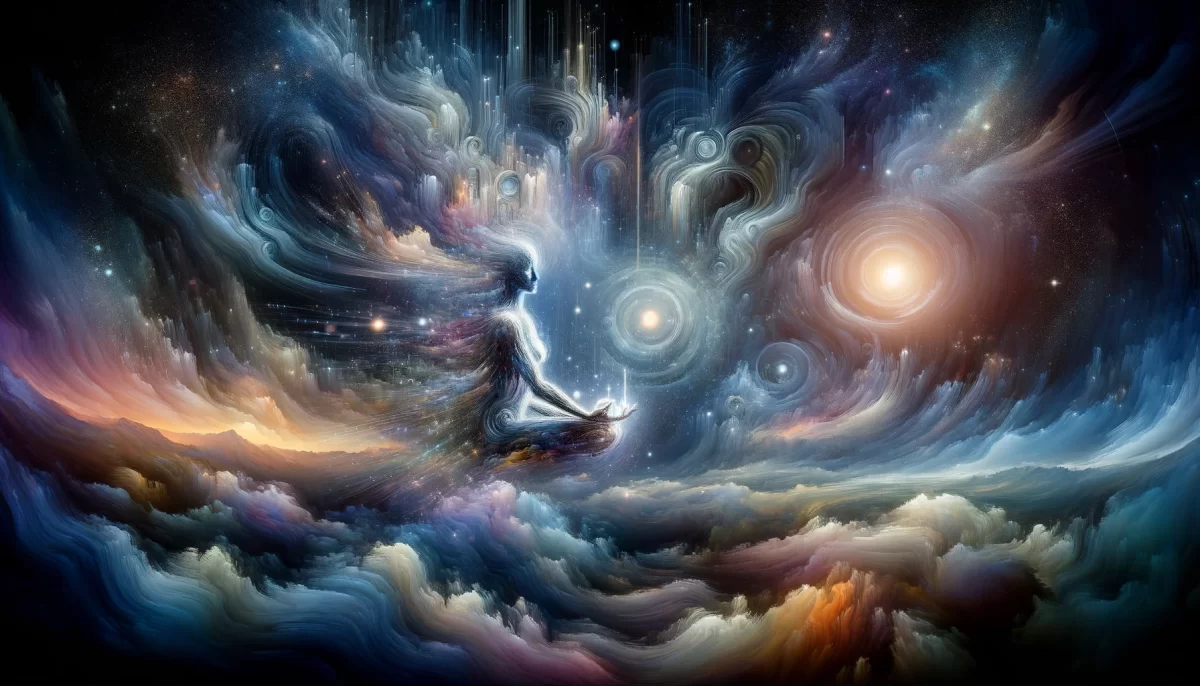



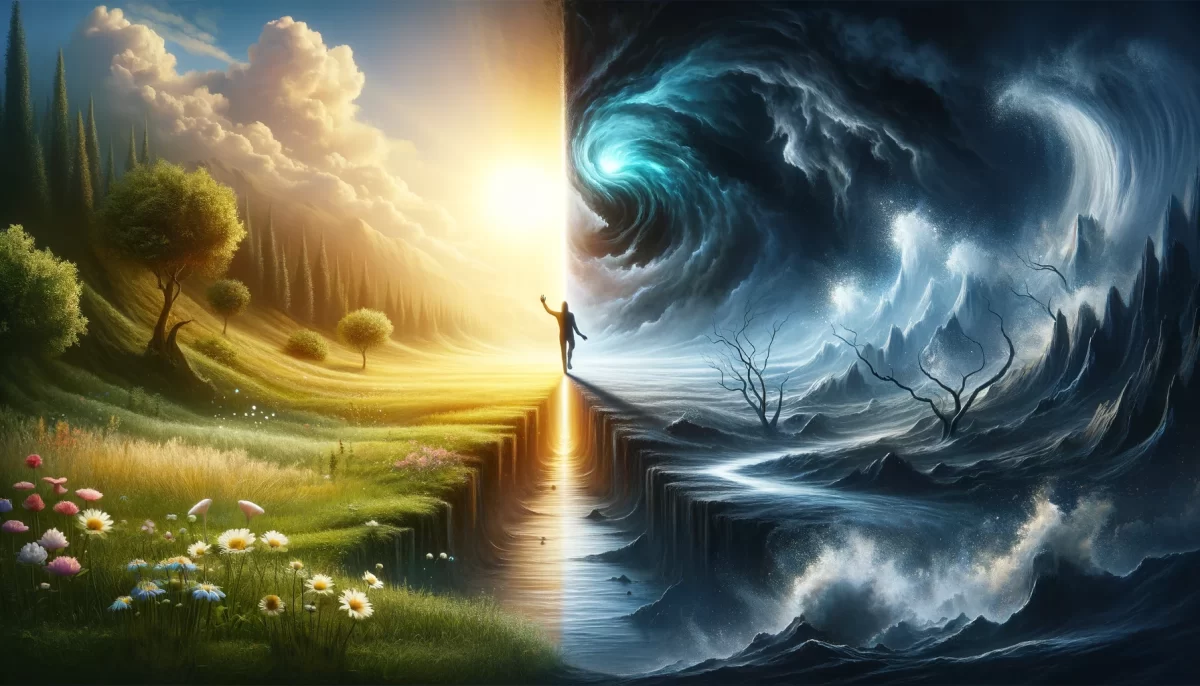

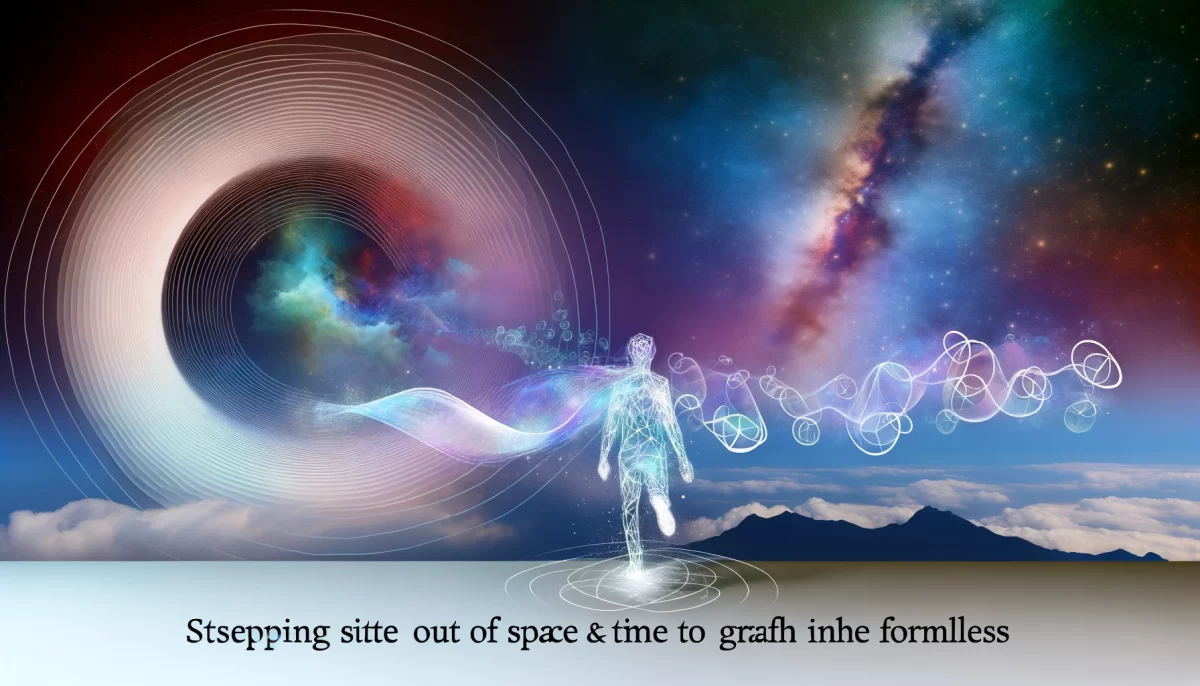
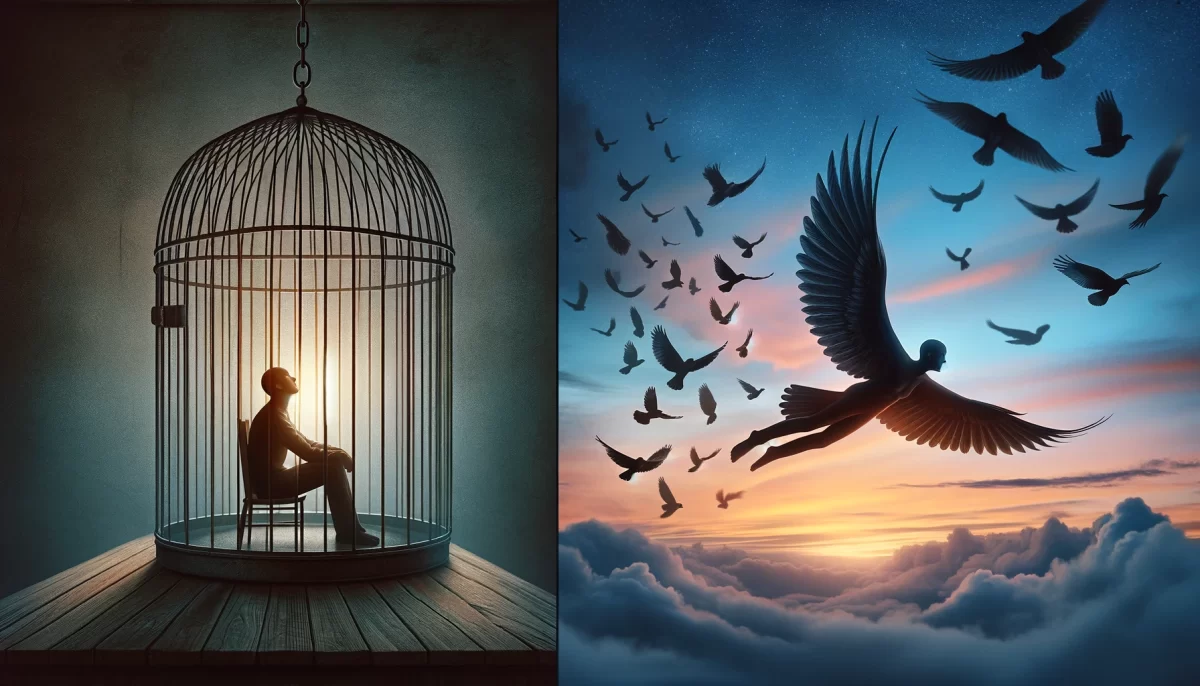
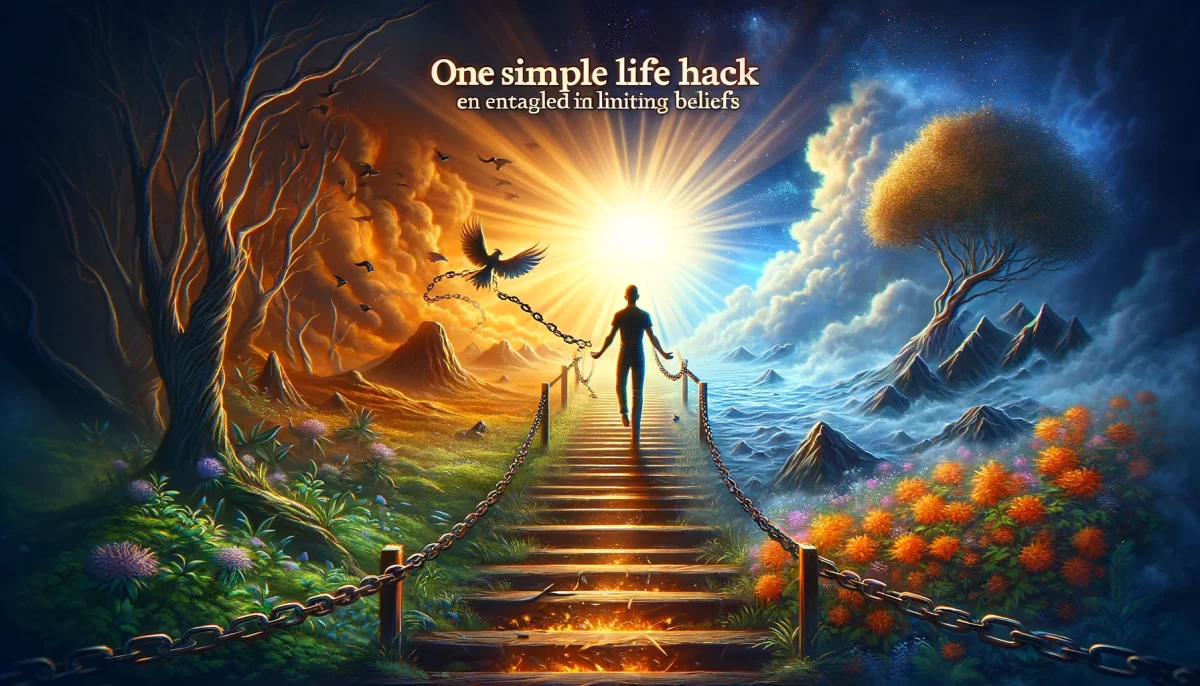
Leave a Reply